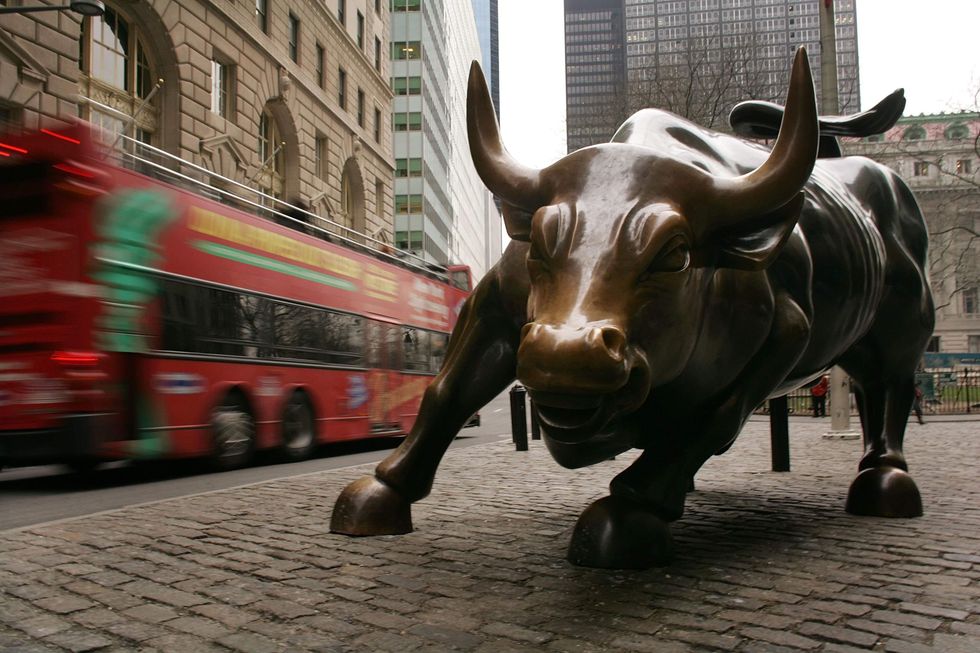
A new study out of a London university suggests that physically stronger men tend to prefer capitalist policies over socialist policies. (Getty Images)

A new study from Brunel University London found that physically weaker men are more apt to believe in socialist policies, such as redistribution of wealth. Meanwhile, stronger men are more geared to believe in the capitalist concepts, such as the idea that people should keep what you earn.
Brunel University academics studied 171 men aged 18 - 40, examining their overall physical strength, bicep circumference, weight, and height. They also noted the amount of time each individual spent at a gym, and examined these variables in light of whether they subscribed more to capitalist or socialist ideologies. They found that the more physically strong the men were, the less they believed in socialist policies, and the more they believed certain social groups should be dominant.
According to The Times, Brunel University's senior lecturer in Psychology in the College of Health and Life Sciences Michael Price said the study raises questions about the correlation between physical strength and egalitarianism — and also poses something of a "chicken or the egg" philosophical question.
“We believe that this link between perceived formidability and egalitarianism could be explained in a number of ways," Price said in the report on Brunel University's website. "It could be the result of men calibrating their egalitarianism to their own formidability. It could be the case that less egalitarian men strive harder to become muscular. Or there could be a third variable at play affecting both egalitarianism and muscularity."
Additionally, Price found that stronger men tend to reject the redistribution of wealth, whether they are financially rich or poor.
"Our results suggest that wealthier men who are more formidable physically are more likely to oppose redistribution of wealth. Essentially, they seem more motivated to defend their resources. But less wealthy men who are still physically formidable don't seem more inclined to support redistribution either," Price said. "They're not demanding a share of the wealth."
Price believes, however, that the correlation of strength and capitalist tendencies stems from our primitive brains that still apply value to strength that would help us acquire and defend resources.
“This is about our Stone Age brains, in a modern society,” Price said in an interview with The Times. “Our minds evolved in environments where strength was a big determinant of success. If you find yourself in a body not threatened by other males, if you feel you can win competitions for status, then maybe you start thinking inequality is pretty good.”
“Of course, this isn’t rational in modern environments, where your ability to win might have more to do with where you went to university," Price said. "Lot of guys who are phenomenally successful in modern societies would probably be nowhere near as successful in hunter gatherer societies.”
The study also posited that a possible alternate explanation might be that people who begin with a belief that strength begets success attempt to achieve success by spending more time in the gym, hypothesizing that "men who were less egalitarian felt more need to go to the gym, unconsciously believing they needed the strength in order to reach a better place in a red-in-tooth-and-claw social hierarchy[,]" according to The Telegraph.
The findings of the Brunel study somewhat match results previously found in a similar 2013 study done by Aarhus University in Denmark. Researchers studied hundreds of men from America, Denmark, and Brazil, using the same criteria Brunel had used, and found that stronger men "take a conservative stance of protecting their own interests," according to the Telegraph.
"Our results demonstrate that physically weak males are more reluctant than physically strong males to assert their self-interest – just as if disputes over national policies were a matter of direct physical confrontation among small numbers of individuals, rather than abstract electoral dynamics among millions," said Michael Bang Petersen, who lead the Aarhus University study.